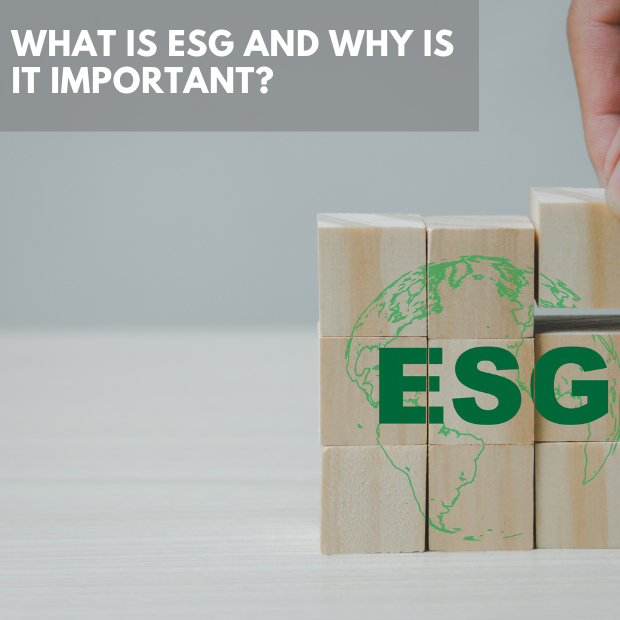
What Is ESG And Why Is It Important?
Conscious consumerism is on the rise. So adopting Environmental, Social, and Governance (ESG) measures are now more important than ever to ensure longevity in the business world.
Below, we discuss what ESG is and why it’s important for your business.
What Is ESG?
ESG stands for environmental, social, and governance criteria. These are used to measure or assess a company’s overall impact on the world.
The ‘E’ in ESG looks at how many resources your business needs on an annual basis and determines the impact your company has on the environment. This can include things like your business’s carbon footprint, water usage, and energy consumption.
The social criteria, or ‘S’ in ESG, look at how your company interacts with local communities. It also assesses your company’s internal policies in relation to diversity, including labor policies.
Governance (G) has to do with your company’s internal practices that determine your decision-making processes and legal compliance.
When ESG is really prioritized it can help to:
- boost company growth
- attract talented employees
- reduce company costs
- facilitate a sense of trust amongst consumers
Why Is It Important For All Businesses?
Smaller businesses are more prone to thinking that ESG may not apply to them. However, this isn’t the case. You don’t have to run a large business for people to pay attention to how you are conducting your affairs.
In fact, small businesses that are mindful of ESG from an early stage may grow quicker compared to companies that aren’t.
You can bolster company integrity, employee wellbeing, and customer relations while reducing company costs by adopting ESG measures, no matter the size of your business.
Company Integrity
Company integrity is all about delivering on what you promised and holding true to what your company stands for.
Nowadays, people are more interested in the story behind your brand and your company ideals. Buyers want to know that they are spending their money on companies that are aligned with their values.
No product or service is truly unique. What truly sets a company apart is the ideals or values that it’s grounded in. By caring about more than your monthly profits and actually contributing to environmental or social causes, you are giving buyers even more reasons to support you.
Employee Wellbeing
Ensuring the well-being of your employees starts with practicing active listening. By being in tune with your employees’ needs, you will not only retain top talent but will also have a more productive team.
As the company owner, social responsibility should start with you. It will then slowly filter down to every department so that it is truly ingrained in the company culture.
Yes, social responsibility is all about benefiting society. But, without ensuring employee wellbeing, you can’t expect to make a lasting, genuine impact on customers, stakeholders, or your local community.
Customer Relations
As a business owner, you may be wondering why you should care about what your customers feel. However, if done right, positive customer relations could be your brand’s greatest ally.
When you make your customers feel valued and appreciated they are more likely to support you on a regular basis. They can also act as brand ambassadors.
It’s all about using special moments to connect with your customer. Whether you send a memorable e-card to a customer on his or her birthday, or whether it’s providing more autonomy throughout the customer journey, there are numerous ways to forge a connection with both old and new customers.
Reduces Costs
A recent study revealed that the cost of ignoring ESG initiatives may be too high.
Companies that scored high when it comes to implementing ESG protocols reported lower capital costs, lower equity costs, and lower overall debt compared to companies with poor ESG scores.
These decreased costs are due, in part, to lower litigation, regulatory, and environmental risks, which are commonly associated with companies with high ESG scores.
In short, ESG is not just nice to have but is strategically imperative if you want to boost company profits. Without it, you run the risk of putting out fires that you never intended to create with money you never intended to spend.
Conclusion
If you want to truly stand out in the sea of companies that offer similar products or services to yours, then now is the time to invest in ESG measures.
Not only does it tell potential stakeholders and customers what your company is all about, but it also gives you the opportunity to make a bigger positive impact on both the environment and local communities.









